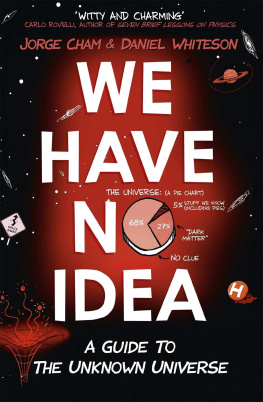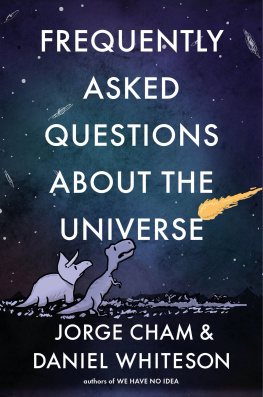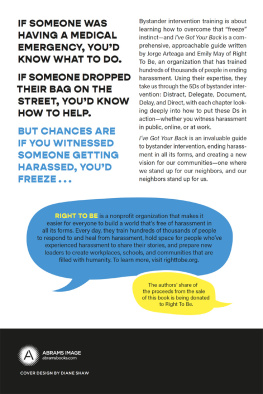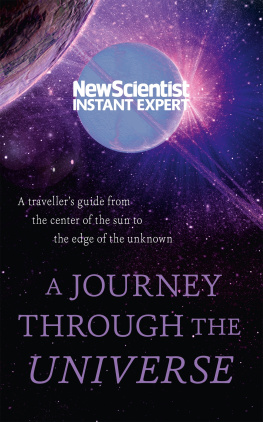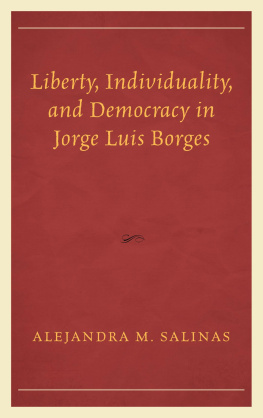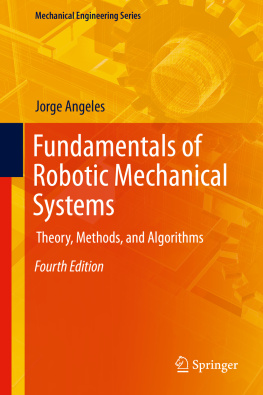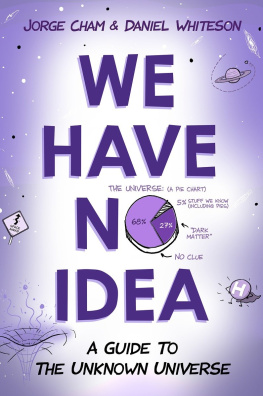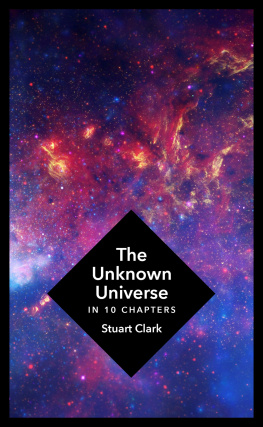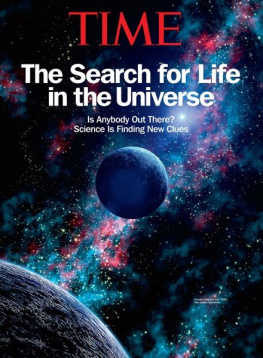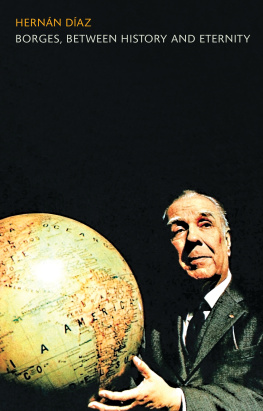About the Authors
Jorge Cham is the creator of the popular online comic Piled Higher and Deeper, popularly known as PHD Comics. He earned his PhD in robotics at Stanford.
Daniel Whiteson is a professor of experimental particle physics at the University of California, Irvine, and a fellow of the American Physical Society. He conducts research using the Large Hadron Collider at CERN.

www.johnmurray.co.uk
First published in Great Britain in 2017 by Hodder & Stoughton
An Hachette UK company
Copyright Jorge Cham and Daniel Whiteson, 2017
The right of Jorge Cham and Daniel Whiteson to be identified as the Authors of the Work has been asserted by them in accordance with the Copyright, Designs and Patents Act 1988.
All rights reserved.
No part of this publication may be reproduced, stored in a retrieval system, or transmitted, in any form or by any means without the prior written permission of the publisher, nor be otherwise circulated in any form of binding or cover other than that in which it is published and without a similar condition being imposed on the subsequent purchaser.
A CIP catalogue record for this title is available from the British Library
ISBN 978 1 473 66018 2
John Murray (Publishers)
50 Victoria Embankment
London
EC4Y 0DZ
www.johnmurray.co.uk
For my daughter, Elinor.
J. C.
To my family, for supporting all the chapters of my life, even those with bad puns in them.
D.W.
Contents
Foreword to the UK Edition
P eople of the United Kingdom: eat more chocolate!
Do it for queen and country. And also, for physics.
You see, the history of modern physics is studded with the accomplishments of English scientists. Names such as Isaac Newton, James Maxwell, and Paul Dirac stand as beacons on the road to uncovering the mysteries of nature and the puzzling but beautiful laws that govern it.
But the key word here is history. While some continue this glorious tradition (Peter Higgs and Stephen Hawking come to mind) the sterling reputation of UK physics is at risk. If success is measured by the number of Nobel Prizes earned, then its hard not to note that the bulk of UK physics Nobel Prizes were awarded pre-1950. Stepping into that gap are your American colleagues, who have dominated the awards since 1950.

What could explain such a decline? What is the secret to American success and the cause of the UKs stumbles? Clearly, the answer is chocolate. A recent study found a strong correlation between the number of Nobel Prizes won and the amount of chocolate eaten by a nations citizens. If you dont believe us, take a look at the graph below.

What is the exact connection between chocolate and Nobel Prizes? We have no idea. Perhaps eating a lot of chocolate somehow boosts the collective physics acumen of a population. Or perhaps winning a lot of Nobel Prizes somehow precipitates a greater hunger for chocolaty treats.
In any case, the path forward is clear. You have a sacred duty to consume more chocolate.
Of course, if that sounds too unhealthy (the US also leads the UK in number of heart attacks), then perhaps simply reading books about physics is good enough. If so, then you can rest easy knowing you are already doing your part to raise the average level of physics knowledge in your country simply by having bought this book.
In fact, just in case, you might want to get a copy for your nieces and nephews, too. They may not like it as much as chocolate, but at least itll teach them about civic responsibility.
Introduction

W ould you like to know how the universe began, what its made of, and how it will end? To understand where time and space come from? To know whether we are alone in the universe?
Too bad! This book will not give you any of those answers.
Instead, this book is about all the things we dont know about the universe: all the big questions that you might think we have already answered but actually havent.
We often hear on the news about some big discovery that answers a deep question about our universe. But how many people had heard of the question before they learned the answer? And how many big questions are still left unanswered? Thats what this book is for, to introduce you to the open questions.
In the pages ahead, well explain what the biggest unanswered questions in the universe are and why they are still mysteries. By the end, youll have a deeper grasp of just how absurd it is to think that we have any clue whats going on or how the universe really works. On the upside, at least youll have a clue as to why we dont have a clue.
The point of the book is not to make you feel depressed about what we dont know but to fill you with a sense of excitement about the incredible amount of uncharted territory left to explore. For each unsolved cosmic mystery, we will also reveal what the answers could mean for humans and what mind-blowing surprises could be hiding in each unknown. We will teach you to look at the world in a different wayby understanding what we dont know, we can see that the future is still full of amazing possibilities.
So strap in, get comfortable, and get ready to explore the depths of our ignorance, because the first step in discovery is to know what is unknown. We are about to embark on a journey through the biggest mysteries in the universe.

What Is the Universe Made Of?
In Which You Learn You Are Quite Weird and Special

I f you are a human being (well go with that assumption for now), then you probably cant help but be a little curious about the world around you. Its part of what it means to be human, and its part of why you picked up this book.
Its not a new feeling. Since the dawn of time, people have wondered about the answers to some basic and very reasonable questions about the world around us:
What is the universe made of?
Are big rocks made of smaller rocks?
Why cant we eat rocks?
What is it like to be a bat?
The first question, What is the universe made of? is a pretty big question. Its big not just because of the topic (it doesnt get much bigger than the universe), but because asking what the universe is made of is relevant to everyone. Its like asking what your house and everything in it (including you) are made out of. You dont need a deep understanding of mathematics or physics to understand that this question affects each and every one of us.
Say you were the first person to ever try to answer the question What is the universe made of? A good approach would be to try the simplest, most nave idea first. For example, you might say that the universe is made of the things we can see in it, so you could answer the question by making a list. Such a list might start like this:

